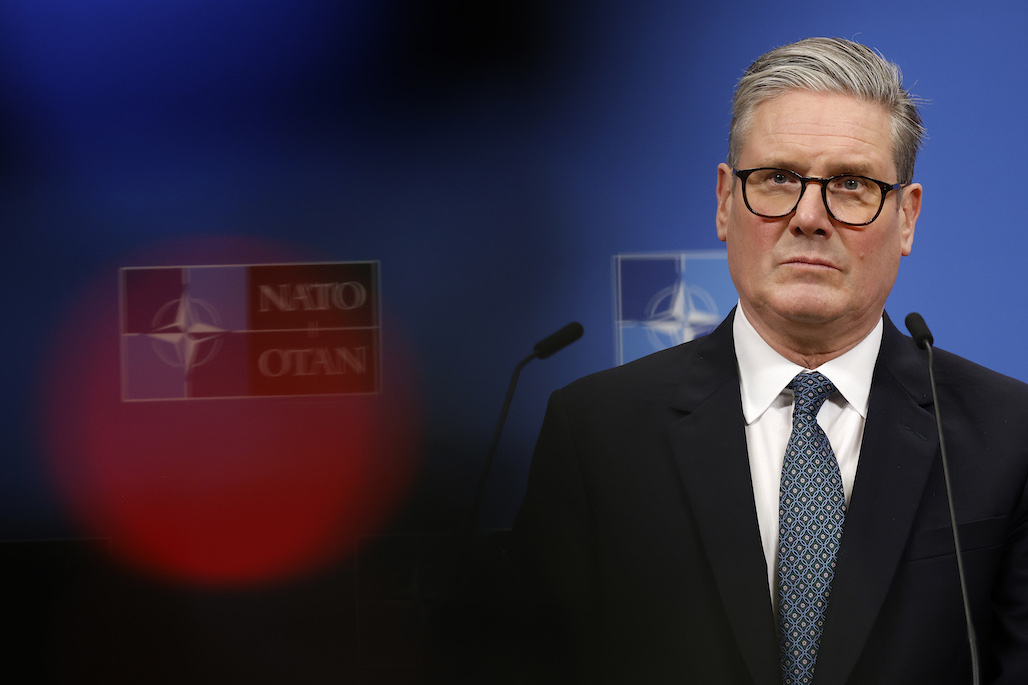The government has defended its controversial decision to relinquish control of the Chagos Islands to Mauritius with an excuse so far-fetched it could be mistaken for a plot from a spy novel gone wrong. According to reports in the Telegraph, Starmer’s administration claims that the deal is necessary to secure the viability of the military base on Diego Garcia, citing potential disruptions in telecommunications due to ‘legal uncertainty’ over the islands’ sovereignty. The Telegraph claimed that one of the Prime Minister’s closest friends, Philippe Sands KC, who has represented Mauritius in the dispute, was the original source of these ‘national security’ claims. The UK is reportedly trying to give away the islands to Mauritius and then lease back the joint US/UK military base at a reported cost of £9 billion over 99 years.
The flimsy pretext of ITU intervention is not just a stretch – it’s a strategic misstep when it comes to political storytelling
Starmer’s official spokesperson has said that the ‘electromagnetic spectrum’ at Diego Garcia, crucial for secure communications, might not function without this deal, suggesting that the International Telecommunication Union (ITU) could impose restrictions based on international legal judgments. This argument, however, raises more eyebrows than it does valid concerns.
Let’s dissect the government’s narrative. First, the ITU, while responsible for managing global radio spectrum, does not typically wade into territorial disputes. Their role is to ensure that frequency allocations are used efficiently and without interference, not to adjudicate or act on sovereignty issues unless explicitly directed by its member states or in line with international law. The suggestion that the ITU, a UN specialised agency, would challenge or disrupt military communications due to a territorial dispute over Chagos seems not just unlikely, but a stretch of the imagination. It’s like saying the UN’s Food and Agriculture Organization could decide to cut off a nation’s food supply over a border dispute.
Second, the legal judgments referred to are advisory, not binding. The idea that these could lead directly to the ITU revoking or questioning frequency allocations for a strategic military base is speculative at best. The ITU’s primary concern remains ensuring the technical coordination of spectrum use, not stepping into the geopolitical fray of sovereignty claims unless explicitly mandated by its members or international law.
Now, even if we entertain this far-fetched scenario where the ITU would challenge the UK’s or the US’s use of frequencies at Diego Garcia, let’s consider the practical implications. If the ITU were to make such a move, the reaction from the Trump administration would be swift, and no doubt severe. The notion of the ITU obstructing American military communication would be met with the kind of response that only Trump could deliver – immediate defunding or withdrawing from the ITU. When it comes to national security, no bureaucratic body would dare to play chicken with an American administration, especially one as confrontational as Trump’s in the wake of his withdrawal from the WHO, which is just up the road from ITU in Geneva. The US has left the WHO, taking with it a very large part of the entire organisation’s budget.
Starmer’s excuse for pushing through the Chagos deal smacks of desperation rather than diplomacy. It appears more like an attempt to cover up what critics might see as a backroom deal, rather than a well-considered response to legal or operational necessities.
The flimsy pretext of ITU intervention is not just a stretch – it’s a strategic misstep when it comes to political storytelling. Whether this deal was about righting historical wrongs or securing future military cooperation, the rationale provided does little to justify it beyond the realm of political expediency. If Starmer’s government truly believes this, they’ve vastly overestimated the ITU’s relevance in military affairs, and at the same time underestimated Trump and the geopolitical chess game where the US holds many of the pieces.
In the grand scheme of international politics, Starmer should be wary of using such tenuous arguments to mask what might be perceived as a less than transparent deal. The realpolitik here is clear. This isn’t about electromagnetic spectrums or ITU mandates – it’s about Starmer navigating the murky waters of international diplomacy with a narrative so flimsy that it collapses under the slightest scrutiny.








Comments